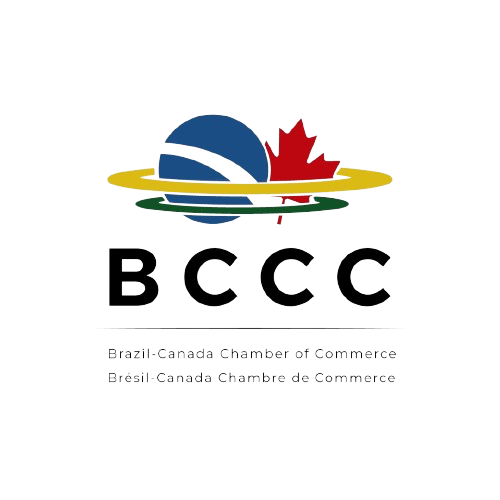Toronto (January 13, 2023) – The 7th BCCC Innovation, Science and Technology (IST) Forum held last December by the Brazil-Canada Chamber of Commerce (BCCC), in partnership with Global Affairs Canada, shed light on the most recent initiatives developed by universities, researchers and entrepreneurs acting on the startup ecosystems in Brazil and Canada. Sponsored by MELLOHAWK Logistics and Prima IP, the event also shared opportunities for collaboration between private sectors, governments and universities. “Canada and Brazil can trade even more, collaborating and bringing innovation to find solutions for global challenges”, stated Raquel Boechat, co-chair of the IST Committee and hostess of the event.
Leonardo Simon, Professor at Waterloo University, explained what the institution is currently doing in terms of nanotechnology and innovation. The university has Canada’s largest nanotechnology institute. Every year, the institution attracts a substantial number of start-ups. “One of the reasons is the amount of funding, almost 30% from industries,” said Simon. From 2019 to 2020, Waterloo University received over $ 245 million CAD in research funding from public and private partners. The impact of entrepreneurship at the university is even greater. In just over a decade, from 2009 to 2019, the start-up companies associated with Waterloo University’s entrepreneurship programs generated revenues of $ 2,3 billion CAN. Also, almost 20% of tech founders in Canada graduated from Waterloo.
Tangho Green Canada is one of them which has been investing in the hemp fiber processing industry. Through nanotechnology, the company developed, in partnership with Waterloo University, an innovative and disruptive technology. Tangho uses the leftover from food to produce nanocellulose which allows the transformation of the hemp fiber into new applications such as packages, nanopaper and bio-based plastics which reduce carbon emissions throughout the entire supply chain.
Monica Alonso Cotta, Professor at UNICAMP – State University of Campinas, gave an overview of nanotechnology research and innovation in Brazil and stressed out the evolution of the energetic matrix in the country. “We have one of the cleanest energetic matrix in the world, 81.3% of the Brazilian electricity matrix is renewable. Brazil is already leading the emerging photovoltaic production in the world.” To get an idea about this market, photovoltaic installed capacity in Brazil has increased 50% from 2021 to November 2022 and will demand new products, developed thanks to nanotechnology.
Ted Hewitt, President of Social Sciences and Humanities Research Council (SSHRC), shared a few programs available in Canada to support research in both countries such as Mitacs and the Canadian International Innovation Program (CIIP). The first one provides funding for projects – up to 55% – by connecting the private sector with post-secondary institutions to solve organizational challenges, in Canada and internationally. The CIIP supports Canadian companies to develop international research in collaboration with foreign partners on projects that have the potential for commercialization, including Brazil. “We expect much closer relations between the two governments because ideologically now there are much more aligned than we were previously”.
Miryam Lazarte, co-founder and CEO of LatAm Startup, introduced the programs carried out by the non-profit accelerator of start-ups. The organization works with international start-ups and newcomers based in Canada. As a designated sponsor for Canada’s Startup Visa program, LatAm Startups is a pioneer in bringing the world’s top start-ups to Canada and helping companies to scale globally from Toronto. The program has three phases: Market Validation, Market Entry Program and Acceleration. The last one offers enrollment in the Startup Visa Program, meetings with investors, access to Acceleration+ (in partnership with TechPlace, Haltech and Innovation Hamilton), co-working space and a few professionals for supporting start-ups. In addition, it offers mentoring in talent acquisition and team building, sales growth in North America, investment pitch preparation, seeking grants and loans, accounting and corporate taxes and company valuation.
Another successful case presented at the forum was Konker, a mining start-up from Brazil, which developed the Muon telescope that employs cosmic rays, an innovative technology for measuring the mass of the iron ore pile with 97% accuracy. This index is higher and more reliable than comparable methods, according to Richard Freund, CEO of Konker. Through this equipment, it is possible, for example, to infer ore density and quality, and identify impurities or contaminants in the pile, among other benefits. With this technology, the start-up brings a fundamental social and sustainable impact to society since the security of tailings dams is crucial to the population and overall environment. In other words, the Muon telescope validates the safety of tailings dams and possible points of weakness by analyzing density changes in dams.
From Brazil, Daniela Carolina Eckert, Executive Manager at Tecnolopuc, and Cora Soares Souza, head of Startup International Markets & Partnerships at Sebrae, also shared information with the audience from their Brazilian start-up ecosystems. Tecnopuc, an ecosystem of start-ups in the Brazilian state of Rio Grande do Sul, develops actions involving public and private companies, research centers, start-ups and professional and business entities in an articulated community that collaborates for the development of innovative businesses.
Sebrae for Startups is an initiative by Sebrae (the Brazilian Micro and Small Businesses Support Service) to accelerate start-ups in the Brazilian state of São Paulo. Created in 2020 with the aim of creating a new way for the institution to operate, the initiative has already accelerated more than 2,000 start-ups with its more than 30 programs.
“I do believe that Canada and Brazil are well positioned to come up with world-class products and solutions to meet the needs of the two countries, both can work together to mutually benefits, socially and economically, and drive the economic development of the world. I’m convinced the BCC IST Forum has an important role in this process,” said Leonardo Mourão Coelho de Souza, Deputy Consul General of Brazil in Toronto.
